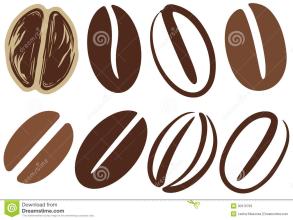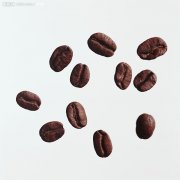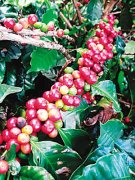Grindability of espresso from pressing Powder to extracted Coffee selective Powder Hammer for Italian blending Coffee Machine

First of all, the grinding degree of coffee every day according to the weather, humidity, temperature, will be in the morning after the cup to make appropriate adjustments, in the cup to observe the coffee extraction state, as well as the taste after quenching! Finally, a judgment is made to determine the strength of the powder pressing.
In previous articles I have also stressed that grinding and powder pressing strength is not static! Pay attention to it every day and even every moment, and make fine adjustments! Therefore, the finer the grinding, the stronger the pressure of the powder is required to be relatively reduced, the coarser the grinding, and the stronger the pressure of the powder is also relatively heavy. Of course, the impact of these two situations on the taste of coffee is also quite large!
Recently, there has been such a phenomenon in the store. After adjusting the grinding degree, the strength of pressing powder has not changed all the time. There are two situations when brewing and extracting: the first is the dark brown oil. The coffee liquid flow state during quenching is also unstable. It is too fine in the early stage, and it is difficult to get water. The extraction time is too long. That is, the first phenomenon of excessive quenching, the taste will appear burnt, and there will be coffee grounds in the mouth. This is the typical powder pressure caused by too much. The second is that the quenching time is shorter, the water is thicker, about 30CC in 15 seconds, the coffee color is light brown, and the taste is sour! This is the typical powder pressure is small, water quickly through the coffee powder caused!
Therefore, no matter which barista wants to make a cup of espresso, it is necessary to adjust the grinding degree and then adjust the pressure according to the weather conditions at the time of the cup test, the quenching state, the taste of the coffee, and the pressure of the powder! It's not that the harder you press the powder, the better!
Secondly, the intensity of powder pressing and powder loading also have a great relationship!
First, let's talk about the taste and taste of espresso. The first thing to say is that the coffee is smooth and not astringent when it enters the mouth. The second is the fragrance and mellow of coffee. The third thing to say is the aftertaste and the fragrance between teeth! Then the main factor that will affect these three points is the fat of coffee! A cup of good espresso oil can account for 70 percent to 80 percent of the total amount of coffee, in front of the customer should not be less than 50 percent, but also to give customers taste methods and taste content related advice, it is best to let customers drink all within three mouths, this is not to let customers drink fast, but in order to let the tasters taste coffee, to ensure that coffee has enough calories and oil exist, in order to ensure that the tasters taste the essence of espresso!
That's right, the amount of powder will affect the amount and quality of grease! Of course, it's not just this that affects grease. Blending, baking, grinding, etc. all affect grease. Therefore, under the above moderate conditions, the fine adjustment of the powder amount will have a great impact on the taste of oil and coffee. For example, when the amount of powder in a single cup is slightly greater than 7 grams of powder, the pressure of powder is relatively reduced, and the fat will last slightly longer when coffee is produced, the fat thickness is larger, and the taste is more balanced. Therefore, according to the amount of powder loaded to adjust the powder pressure, in order to adjust the taste and taste of coffee!
Thirdly, there is also a direct relationship between the pressure and the roasting degree of coffee beans!
Here's a quick look at the beans used to make espresso. As we all know, espresso beans are made by the method of accompaniment, because a single variety of beans can not meet the requirements of espresso taste, so the adjustment of accompaniment and taste is also a major factor affecting taste. Since coffee is made by blending, there is no lack of roasting problems.
In western countries, espresso coffee is mostly made from French roast to Italian roast, because of the history of coffee development and the meat-eating habits of westerners, which gradually formed the requirements for coffee taste; In the East, otherwise, the coffee culture and history of the East is not far-reaching enough, most of the taste judgment of coffee stays in bitter taste, most of the eating habits are mainly vegetarian, so most coffee makers and roasters like to reflect the sour taste of coffee more obviously, so that the taste of espresso is reduced, that is to say, Orientals rarely roast coffee beans to achieve true Italian effect.
So at this roast, coffee still wants to emphasize the balance of taste, how do we do it? Yes, we can figure out a way to make coffee powder! Some people have put forward such a theory, the pressure of powder is too large, the more solid the coffee powder pressure,(to ensure that the amount of powder is certain) the moisture will slowly penetrate the coffee powder, the more sufficient the extracted ingredients, can make up for the coffee sour too strong, taste not thick enough phenomenon! Of course, this theory has its drawbacks. First, it is easy to extract too much, that is, there is a burnt smell. Second, if you don't master it well, you will prolong the quenching time and extract the bad ingredients in coffee. Third, it is easy to cause extreme taste, that is, the taste of death and bitterness, without aroma. It can be said that taste bias is a major feature, but a good cup of espresso is still dominated by taste balance!
Therefore, the production of espresso is not static, according to various situations to fine-tune the powder strength! Espresso production on the state and taste and taste is king!!
Important Notice :
前街咖啡 FrontStreet Coffee has moved to new addredd:
FrontStreet Coffee Address: 315,Donghua East Road,GuangZhou
Tel:020 38364473
- Prev

Taste and taste of espresso Coffee Machine Brand Italian blend Bean Italian Milk Coffee English
The less condensed Italian style doesn't care about Tian Chang Di Jiu (Eternal Dumpling), only about what it once had. The Italian style is concentrated in a small amount, and each mouthful presents a magnificent feast for the taste buds. Good Italian concentration, even if the amount is small, but the aroma lingers in the lips and teeth for a long time, dozens of minutes later, you can still feel the wonderful aftertaste. Today, with the vigorous development of Italian milk coffee, the taste and taste of espresso
- Next

Shakiso Shakisso Manor Sidamo Guji producing area, Sidamo, Ethiopia
Shakisso is located in the southern part of Guji and Oromia, adjacent to Sidama and Gedeo. There are many pits in this area, which were used to mine gold in the early days, so there are many potholes in this coffee growing area. This makes people dangerous when walking between coffee growing areas. Shaquiso is unique to Gucci / Sidamori.
Related
- What documents do you need to go through to open a coffee shop? coffee shop coffee shop certificate processing process
- How to purchase Coffee beans in small Cafe how to choose a suitable supplier for domestic Coffee supply Company
- How to drink Starbucks Fragrance White Coffee? how to make Australian White Coffee? what Italian coffee beans are recommended?
- The Story of Flora Coffee: the name of Flora Coffee Bean and the implication of the Flowers on Florna Coffee
- How much does a cup of coffee cost? How much is the profit of a cup of coffee? What is the profit of the coffee shop in a year?
- Yunnan small Coffee, known as "fragrant Coffee", introduces the characteristics of Alpine Arabica Coffee producing areas in Yunnan, China
- 2023 latest Starbucks full menu price list how much is a cup of Starbucks coffee what is better to drink the most popular hot and cold drinks recommended
- Starbucks different kinds of Coffee Price list Starbucks menu 2023 Top Ten Best drinks in Starbucks
- Starbucks Spring praise Comprehensive matching Coffee Bean theme Story Packaging implication and taste description
- The cost of a cup of coffee latte American coffee cost price and selling price

